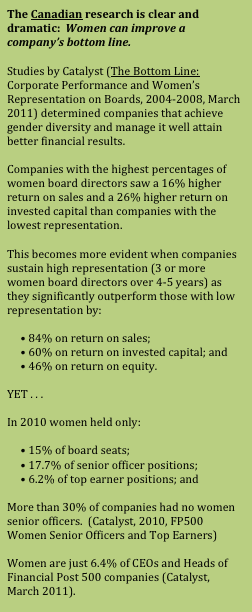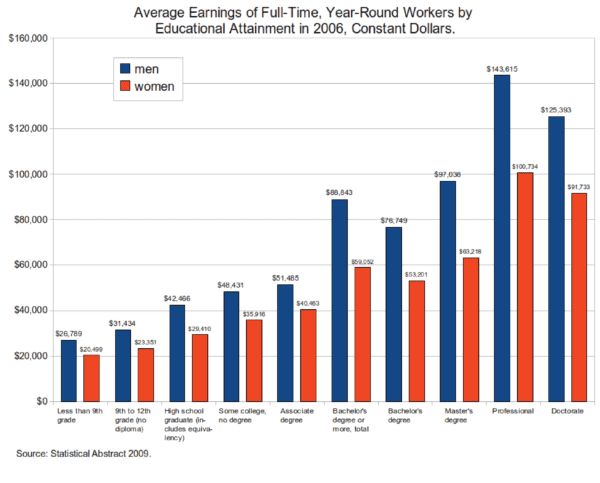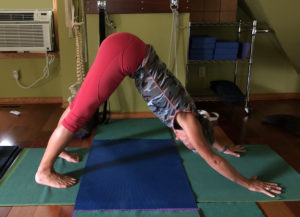As a feminist who has disallowed inequity to rule her life and a concerned citizen who understands the value of diversity, it is difficult to not become cynical when I read the preponderance of research claiming North America is far from gender parity. Gender disparity is particularly evident in leadership roles across most sectors of the workforce, hence, why I remained an entrepreneur and self-employed during my consulting career.
The recent Benchmarking Women’s Leadership 2nd edition study researched women’s leadership in four sectors — politics & government, nonprofit, business and entrepreneurship. The findings showed no change from the previous study conducted in 2009. With a relatively flat line for a growth rate, research author Tiffani Lennon speculates we will not reach gender parity in leadership roles until 2085. A voice in my head screams “in my lifetime,” which means I would be 130 years old if I were to wait that long.

Concerted social change typically occurs over a 20-year period. Essentially, a couple of generations of reconditioned thinking and new behaviours are required before we see the desired results. However, something else is at work in our society to keep women at bay — “even when women outperform their male counterparts, they’re still not recognized for senior leadership positions.”
The resistance to gender parity in North American society is a significant determinant of our current status. Tragically, both men and women are consciously and unconsciously enabling this prejudice. The British Institute for Public Policy Research registers
• 8 of 10 married women do more household chores,
• 1 in 10 married men does an equal amount of cleaning and washing as his wife,
• 13% of women say their husbands do more housework than they do,
• 50% of married women do 13 hours or more/week.
The IPPR says for real equality, society needs to see men pick up the vacuum cleaner and do their fair share. “The revolution in gender roles is unfinished business,” said Nick Pearce, director of IPPR. “Women still shoulder the overwhelming burden of household tasks, particularly after they have children.”
Is it then no surprise women are not found in leadership roles? Married women typically carry two full-time jobs — one at home and one outside the home. Given the level of stress both bring, I ask, “Who would want to add more challenge and complexity to one’s life?” I loved my parents dearly, but I always maintained “they raised their son differently than they raised their daughters” . . . different chores, different expectations, different accountabilities. The unfortunate outcome of disparity is, over the long term, everyone loses. The gains of instant gratification are short-sighted and, as most of us during our adolescence come to realize, not worth their longer-term pains.
As men and women of the 21st century, it is time we collectively raised the roof on gender disparity or should I say shattered, for once and for all, the glass ceiling blocking social reform. If you need a bit more evidence to convince you then have a look at the wage disparity below. You may notice that we cannot attribute such inequity to being poorly educated given the margin between men and women’s salaries appears to increase not decrease with higher levels of education.
 To dislodge any cynicism I may have triggered in you, let me reframe this problem into an opportunity to create more of what we want in civil society — men and women equitably represented in leadership roles. Here is one strategy I adopted to allow me to focus my energy on creating the career and life I desired — since the age of 30, I have paid a housekeeper to maintain my home. Interestingly, an added benefit is it reduces the conflict around chores as well.
To dislodge any cynicism I may have triggered in you, let me reframe this problem into an opportunity to create more of what we want in civil society — men and women equitably represented in leadership roles. Here is one strategy I adopted to allow me to focus my energy on creating the career and life I desired — since the age of 30, I have paid a housekeeper to maintain my home. Interestingly, an added benefit is it reduces the conflict around chores as well.
How about you? What one action can you commit to that will bring us all closer to gender parity “in my life time?”





